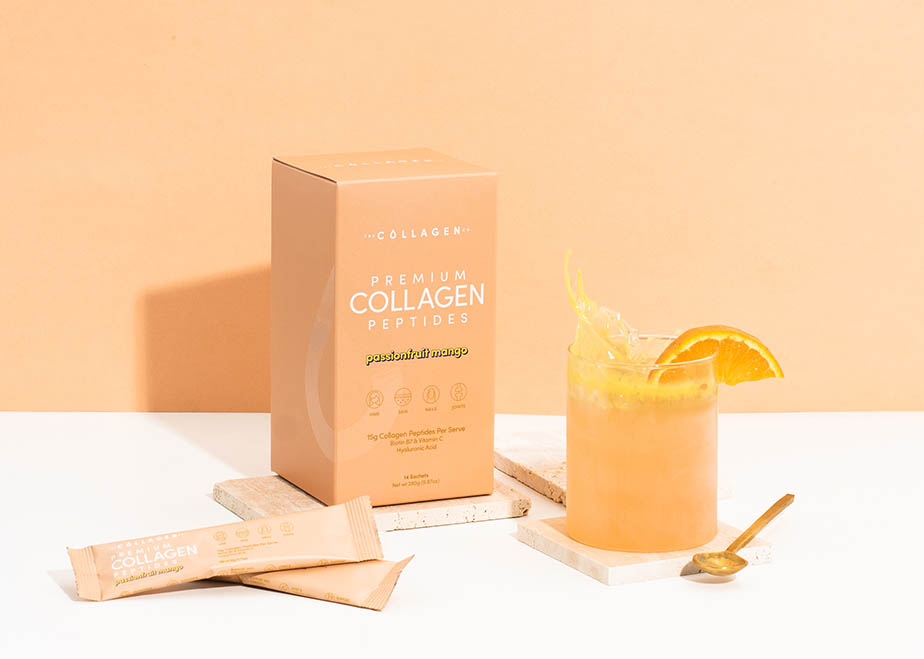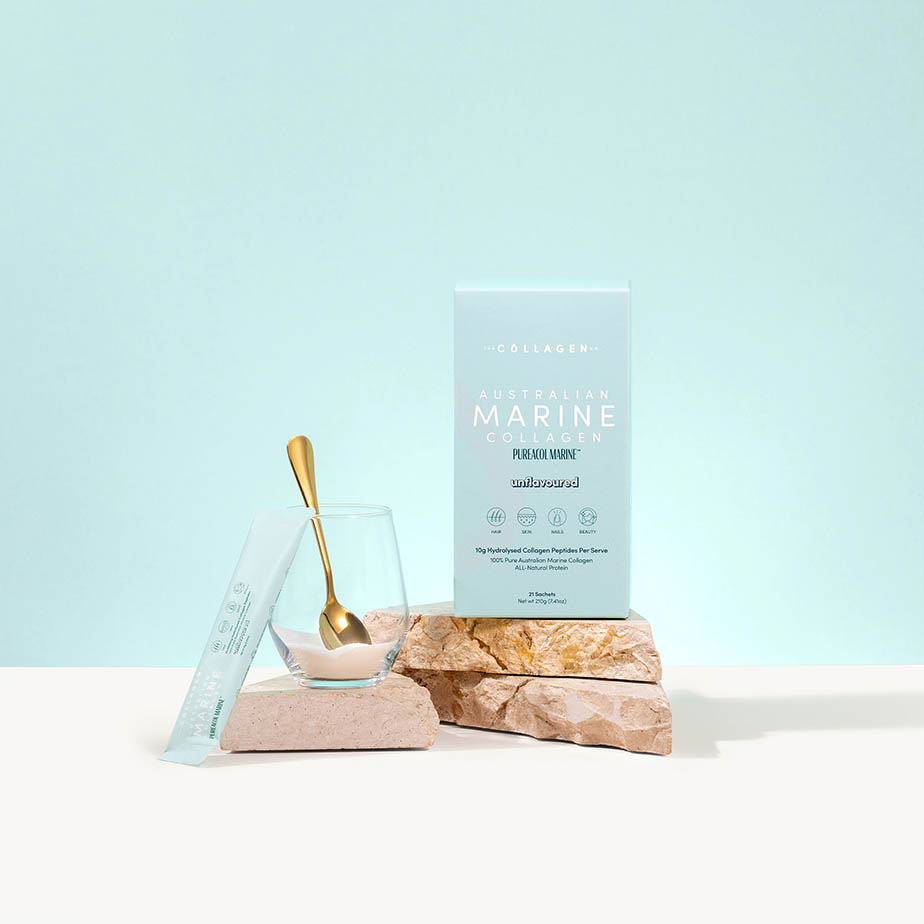
Glowing, radiant skin is often associated with youthfulness and vitality. It is no wonder that so many of us have tried to replicate this for ourselves with our rigorous skincare routines and regimes. But is achieving that glowing complexion easier than we think?
Collagen is an abundant fibrous protein in the body that serves as a basic building block for various tissues in our bodies. It also plays a crucial role in achieving and maintaining a glowing complexion.
In this article, we will look at the nature of collagen, explore its contribution to glowing skin and discuss the types of collagen and where they come from.
What is collagen?
As mentioned above, collagen is a fibrous protein that forms the structural framework of our skin, bones, tendons, ligaments and various other connective tissues. It gives the skin strength, elasticity, and firmness, contributing to its youthful appearance.
Collagen has a unique triple helix structure, formed by three polypeptide chains called alpha chains, and is made up of amino acids, mainly glycine, proline, and hydroxyproline. This triple helix structure is what gives collagen its strength, stability, and resistance to stretching.
Types of Collagen and Sources
Different types of collagen are present in the body. Each type of collagen provides specific benefits to the body and subsequently skin.
Type I Collagen
Type I collagen is the most abundant type of collagen in the body, making up 90% of your body’s collagen. It is also the most abundant type of collagen found in the skin. It provides structural support and helps maintain the skin’s elasticity and firmness. The triple helix structure of type I collagen allows it to resist stretching forces and maintain firmness in the skin. Natural sources of type I collagen include bone broth, chicken, fish, and egg white.
Type II Collagen
Type II collagen is primarily found in cartilage, which acts as a cushion between your joints, providing flexibility and shock absorption. Type II collagen plays a crucial role in joint health as it is responsible for maintaining the integrity and elasticity of articular cartilage. Type II collagen can be sourced from chicken cartilage or collagen supplements such as those from The Collagen Co.
Type III Collagen
Type III collagen often works with Type I collagen to form a supportive network during tissue regeneration and is also abundant in the skin. Type III collagen provides further structural support and suppleness to the tissues in our bodies. It is also particularly important in wound healing and tissue repair.
Marine Collagen
Known for its high bioavailability and compatibility with the human body, marine collagen is derived from fish or other marine sources. It is often found in collagen supplements and skincare products, offering skin-enhancing benefits. Marine collagen can help improve skin hydration, elasticity, and overall radiance.
Bovine Collagen
Bovine collagen contains types I and III collagen, which support skin health, including reducing the appearance of acne scars and promoting a more youthful complexion. This is why bovine collagen is often selected as collagen for skin radiance in supplements.

Glowing Skin and Collagen
Collagen plays a key role in achieving glowing skin due to its skin-regenerating properties and its triple helix structure, which allows it to withstand stretching.
Here is a detailed understanding of how collagen can contribute to glowing skin.
Improved Skin Elasticity
As we know, collagen has a triple helix structure, making it responsible for maintaining the skin’s elasticity and firmness. This is especially beneficial because as we age, collagen production declines, resulting in a loss of skin elasticity and the formation of fine lines and wrinkles. By replenishing collagen levels through supplements, diet or skincare, the skin retains more of its firmness, giving it a smoother, more youthful glow.
Enhanced Hydration
Optimal skin hydration often gives the appearance of glowing skin. Collagen has water-binding properties, which help to retain moisture in the skin. It also contributes to a healthy skin barrier that prevents moisture loss and maintains optimal skin hydration. As a result, the skin appears smoother and more radiant with the help of collagen.
Increased Skin Cell Renewal
Collagen supports the skin’s natural cell turnover process. This is the process where dead skin cells are shed off to allow new, vibrant cells to emerge. This turnover process helps to reduce dullness and reveals fresher skin which contributes to a radiant glow.
Reduced Hyperpigmentation and Scarring
Collagen promotes wound healing, minimising the formation of hyperpigmentation caused by acne, sun damage, or other skin conditions. By supporting this regeneration of healthy skin tissue, collagen helps to fade scars and even out skin tone, equating to a more radiant complexion.
As we have explored, collagen is a key factor in achieving glowing, radiant skin. Its ability to improve the skin’s elasticity, promote hydration, support cell renewal and reduce hyperpigmentation makes it a sought-after ingredient for a healthy, radiant complexion.
In addition to skin health, collagen also helps maintain your overall health as it is responsible for many processes in the body.